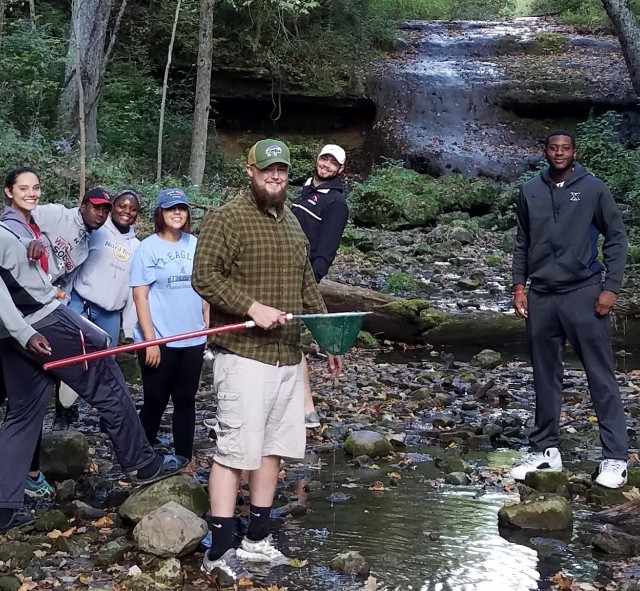Springfield, Ohio – Wittenberg Professor of Geology John Ritter’s resume includes many impressive achievements, including Excellence in Teaching awards, an Ohio Professor of the Year award, an Excellence in Community Service award. This year another teaching honor was bestowed on the geomorphologist – the highest award a member of Wittenberg University’s faculty can receive, the Alumni Association’s Award for Distinguished Teaching.
Ritter, who joined the Wittenberg faculty in 1990, is currently department chair of geology and serves as director of the environmental science program. Named as the Council for Advancement and Support of Education (CASE) Ohio Professor of the Year in 2013, he has also played a significant leadership role in the region, serving on local boards and committees, including the Clark County Soil and Water Conservation District. In addition, Ritter regularly uses the area’s environmental resources to engage his students in collaborative research.
A Fulbright Scholar to Trinidad and Tobago in Spring 2005, Ritter received this latest award last spring, but was recognized again during this year’s Homecoming festivities, Oct. 7-9, surrounded by Wittenberg alumni, faculty and friends.
“I have been at Wittenberg my entire professional career,” said Ritter, who earned his bachelor’s degree with honors from Pennsylvania State University, his master’s degree from the University of New Mexico, and his doctorate also from Pennsylvania State University. After completing his education at Penn State, he joined the Wittenberg faculty where he has remained for 26 years.
“While it would be easy to say that the job itself brought me to Wittenberg, it would be more accurate to say that the job provided me with an opportunity to make a very deliberate decision to try teaching in a liberal arts setting focused on undergraduate education,” Ritter said. “It is something that I found I enjoyed and was even good at, making the decision to stay very easy. Wittenberg made it possible for me to be involved professionally within the Springfield and Clark County community, which in turn allowed me to develop my teaching in ways that were not only stimulating for me, but relevant for my students.”
His current research interests include temporal and spatial variations in drainage basin water and sediment yield and the associated downstream adjustments. The general objective of this research is to understand causative mechanisms for stream deposition, stability, or erosion, especially with respect to climate change. He is presently working on alluvial fan evolution in the Buena Vista valley of north central Nevada. This work compliments previous work in southeastern California and southwestern Montana and will culminate in a review paper on the influences of climate on alluvial fan evolution.
Locally, Ritter is working on the causes of local drainage pattern changes in the Mad River and Little Miami River systems as they relate to the formation of Clifton Gorge and other gorges in the region.
“My most valuable service to the community relative to the contribution I have made, my professional growth, and student learning has been my involvement with Clark Soil and Water Conservation District, the Springfield Conservancy District, and the Parks and Open Space Subcommittee of the Chamber of Commerce’s Springfield Moving Forward campaign,” said Ritter, who teaches courses in introductory geology, environmental geology, and environmental science with a focus on earth surface processes, especially as they relate to hydrology, hydrogeology, and soils.
From examining alternatives for Springfield’s combined sewer overflow problem to studying local drainage patterns and helping restore Springfield’s own Buck Creek, Ritter is ensuring that his students are able to take the content from his courses and apply it in practical, yet meaningful ways.
The Alumni Association Award for Distinguished Teaching was established in 1960. Candidates must have taught at Wittenberg for more than five years and are nominated by students, alumni, faculty and staff.







